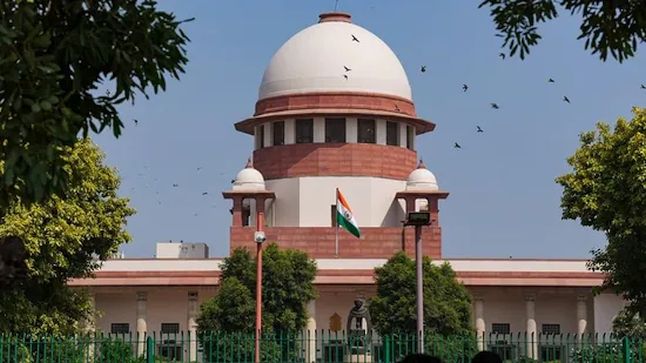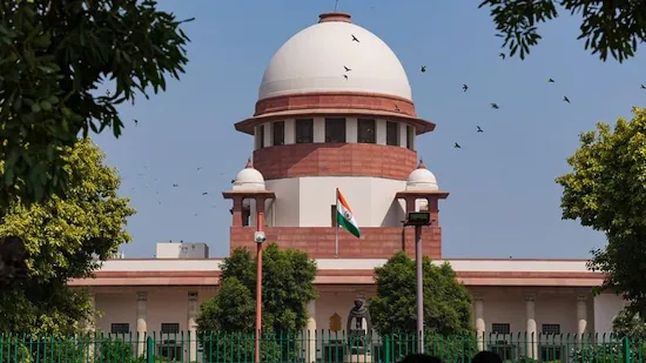While there are many takers for the view expressed by NR Narayana Murthy that coaching classes are responsible for lowering the quality of students coming to India’s premier educational institutions-the Indian Institutes of Technology (IITs)-many say the problem is aggravated by the quota system which sometimes leads to a reservation of almost half the number of seats.
Sanjeev Sanghi, faculty at IIT Delhi echoed Murthy’s views, in an interview to CNN-IBN, “Coaching is causing a problem, but coaching is a social problem and it is arising because we have very few seats in IIT and there are so many takers.” But, he made the point that the ground reality of reservations in India was also responsible for the worsening situation.
“Inclusion policies have led to a reservation to the tune of 49 percent in the IITs,” Sanghi said, adding, “When we try to have an inclusive policy there will be problems with quality.”
Addressing a gathering of former IITians at a ‘Pan IIT’ summit in New York on Sunday, the founder and chairman emeritus of Infosys Technologies Ltd said the quality of students entering IITs has deteriorated over the years due to the coaching classes. These coaching classes prepare engineering aspirants and only 20 percent of them are competent, while the rest are below par, Murthy said.
Referring to the inept majority of students, he said, “They somehow get through the JEE but their performance in IITs, at jobs or when they come for higher education in institutes in the US is not as good as it used to be.”
“Save the top 20 percent who crack the tough IIT exam and can stand among the best anywhere in the world, the quality of the remaining 80 percent of students leaves much to be desired,” Murthy said.
Murthy’s views find resonance with the IIT professor, but Sanghi says the problem is a much larger sociological problem. Apart from the coaching classes that churn out assembly line IIT candidates and the country’s inclusive policies, parental pressure adds to the problem.
This sociological problem takes root from our mindset as a society. As long as we have over ambitious Indian parents who want their children to get into the IITs and IIMs, it will be difficult for us to do away with coaching.
“Whatever system we adopt it will be difficult for IITs to finish the coaching system because this is what parents are asking their children to take,” Sanghi says.
He says the dismantling of the JEE entrance exams is not the solution to improve the quality of students and proposes that a two tier admission process be adopted - where students give an entrance exam after class 11 and the top 50,000 students from there appear for the second exam.
The quota reserves 22.5 percent seats for candidates from the backward and underprivileged classes of society has been a topic of much discussion, but the government’s policies to take along the aam aadmi in an inclusive growth strategy for the country has dictated its policies.
While many members of the backward classes take advantage of these facilities, there are some like Milind Kamble, a Dalit entrepreuner, who choose to stand on equal ground with everyone else.
Kamble, who has a construction company in Pune, resisted his father’s instruction to get a cushy government job through the quota alloted for backward classes. He instead used his engineering education to start his own construction business and forge a path for himself through hardwork, free competition and determination.
“If you are a follower of Baba Saheb Ambedkar, then how can you be job seeker, you should be a job giver,” Kamble says. “Baba Saheb Ambedkar was not a quota product.”
The quota system which started off as being a means of affirmative action to provide jobs, to “untouchables” of Hindu society and tribal groups, in the government and seats in state-funded colleges in 1950, has today become a tactic of populist politics and vote bank dynamics.
Kamble, who did not rely on a caste quota for a job, says it’s time for Dalits and others to make their own paths and stop piggybacking on government incentives. “Till when will the Dalit youth fight against capitalism?” Kamble asks.
In the light of the so called “inclusive system” in education and the worsening candidate pool taking admissions into IITs and IIMs, it is probably the right time to ponder.
Watch video of Sanjeev Sanghi, faculty at IIT Delhi talk of coaching and quotas being responsible for the deteriorating quality of IIT students:


)




)
)
)
)
)
)
)
)